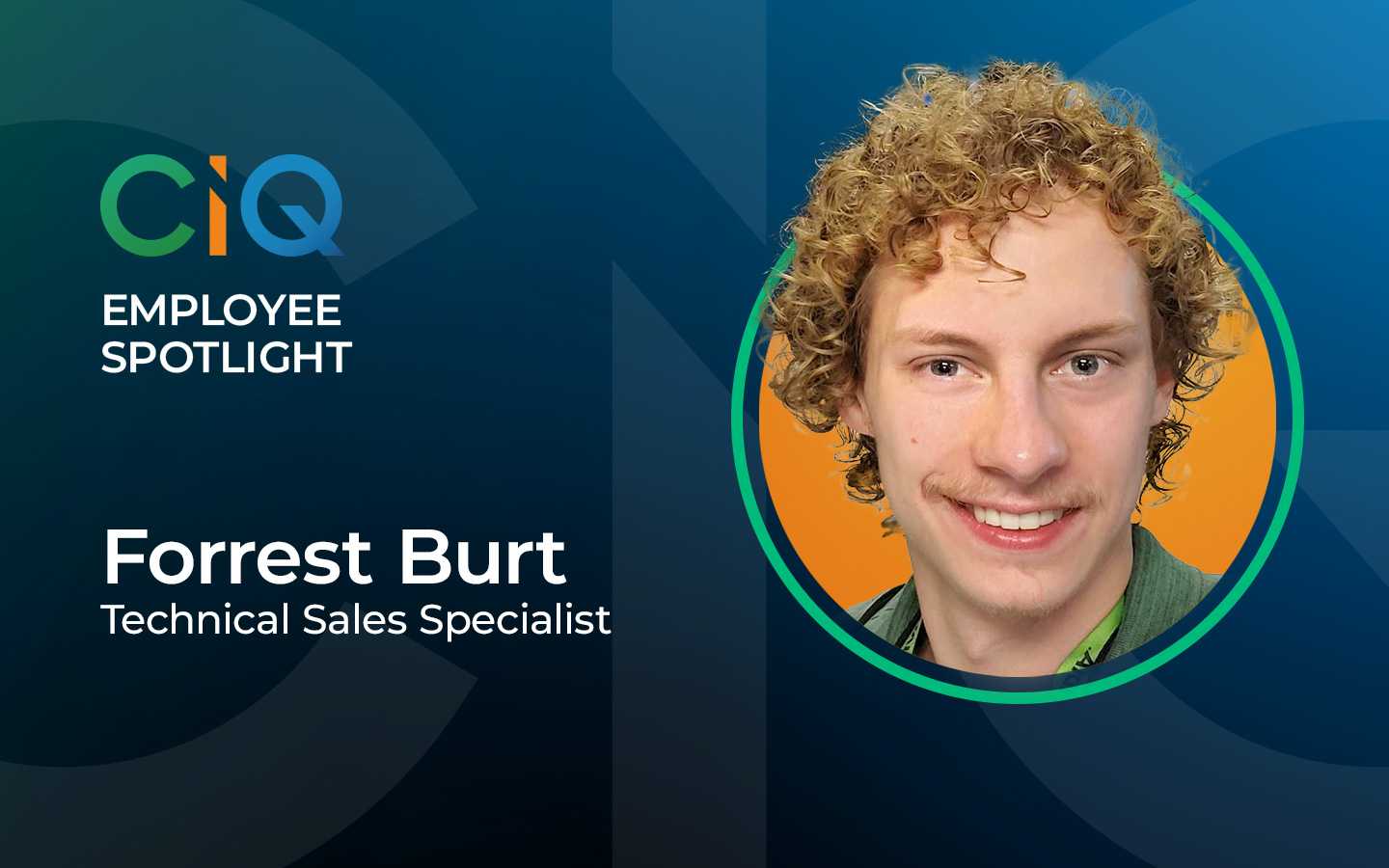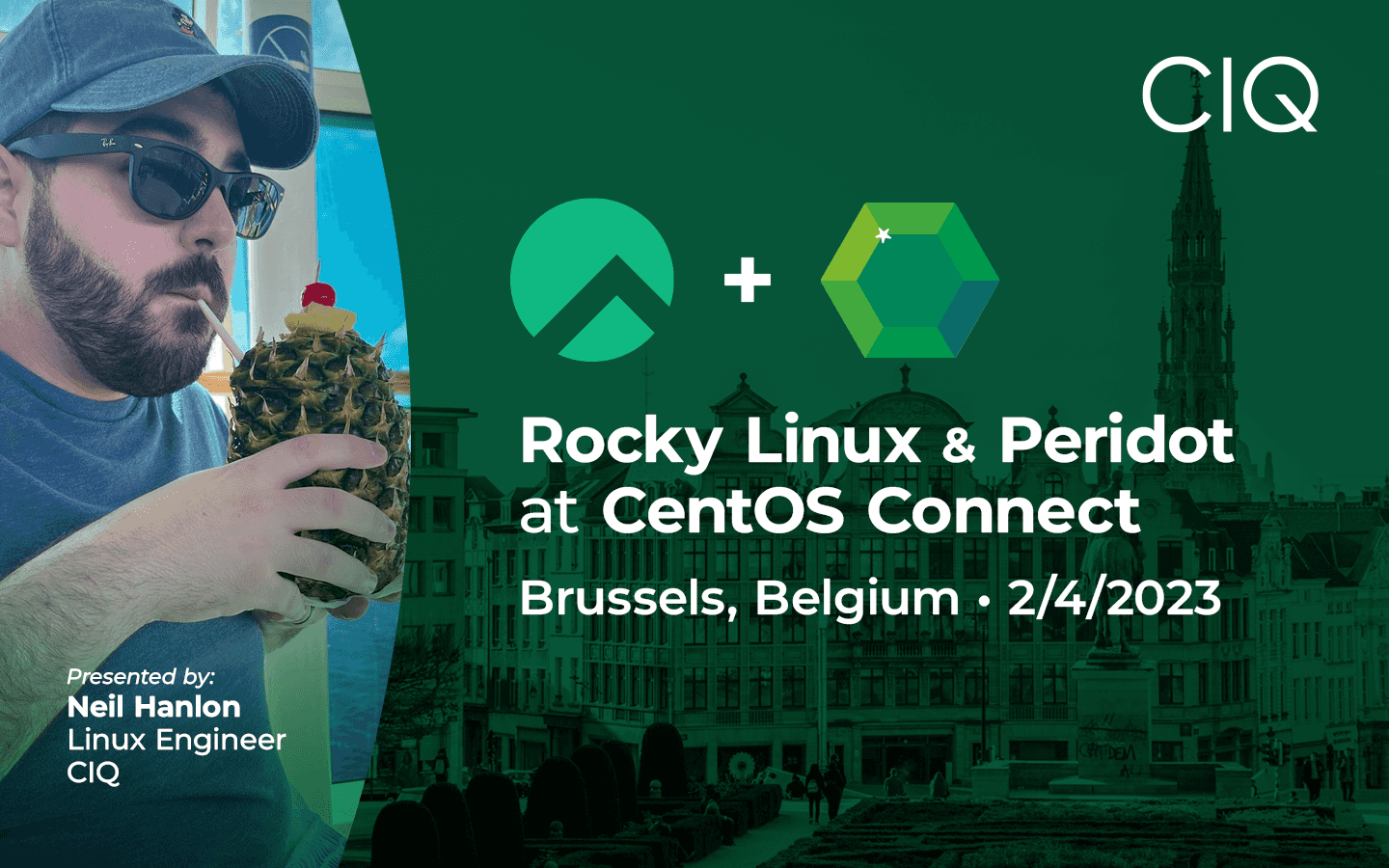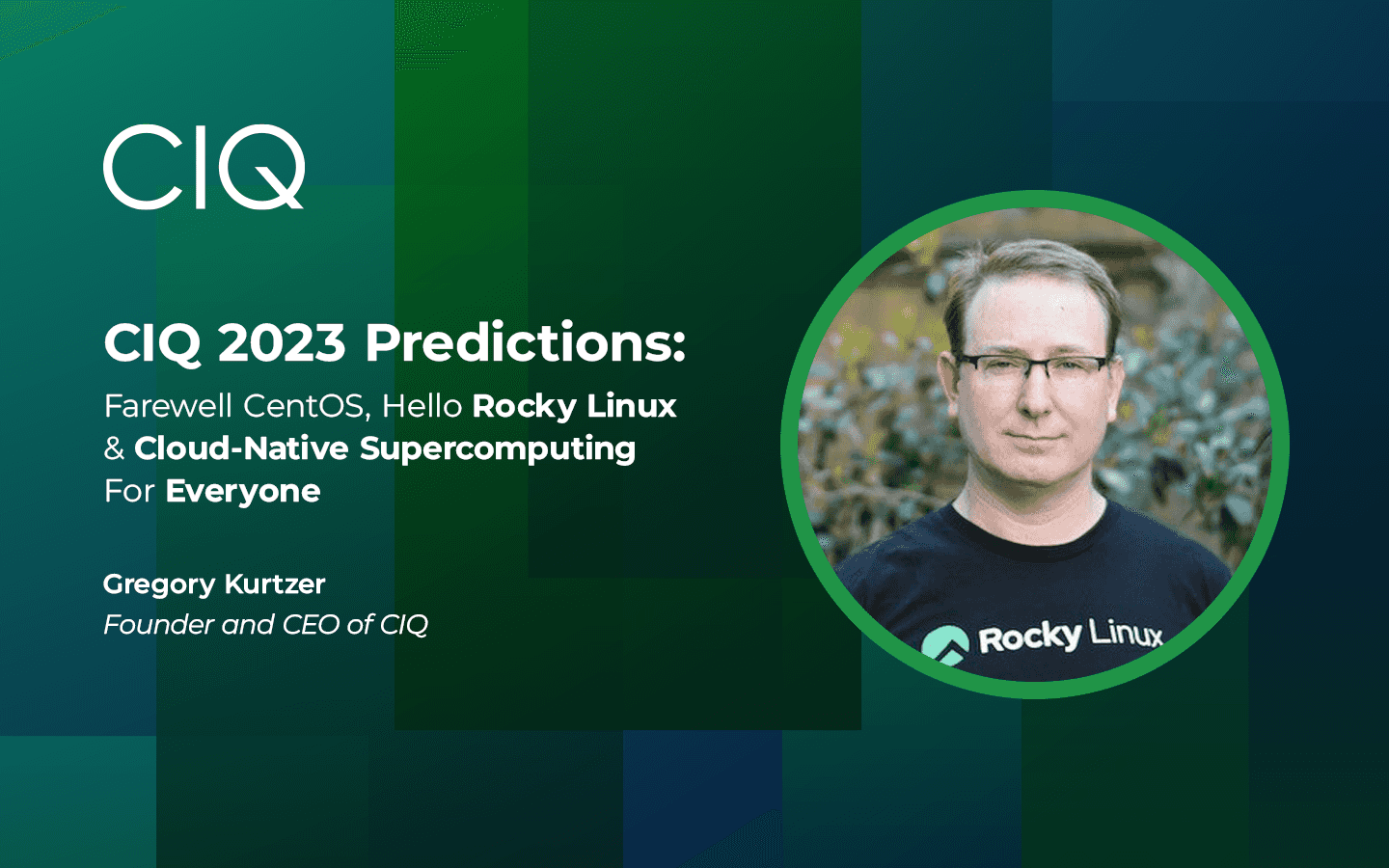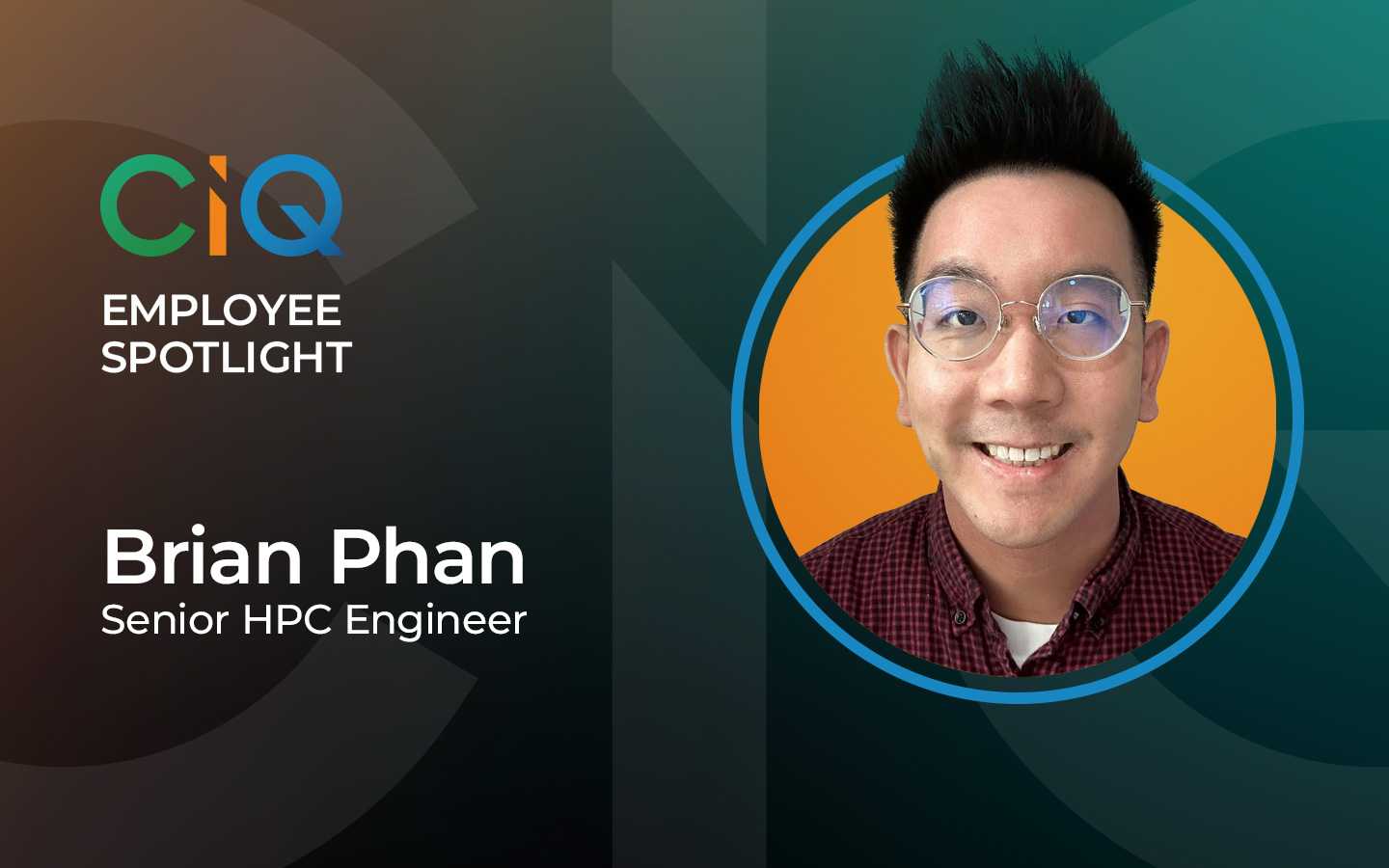5 min read
CIQ Employee Spotlight: Forrest Burt

As one of the earliest CIQ team members, Forrest Burt should be familiar to blog post readers, webinar viewers, and conference attendees. Now you can get to know him better in our employee spotlight! You’ll learn about Forrest’s path from learning Linux to working on supercomputers, why he jumped at the opportunity to work at CIQ, and what makes High Performance Computing (HPC) such a fascinating field.
What’s your role in the company, and what do you enjoy most about it?
I’m a bit of a jack-of-all-trades around HPC/supercomputing here at CIQ; I joined at an early stage, in June 2021, as an HPC systems engineer/solutions architect, and so I’ve done a lot of different things over time here. I’ve been the primary person building Fuzzball workflows since I started - I was hired very originally so we’d have an HPC applications expert for our early Fuzzball POCs - and have also been the primary person giving Fuzzball demos since the start. I’ve worked on HPC customer support tickets, gone out to customer sites to assist, written technical blogs, appeared on our webinar so much I’ve been randomly recognized in public from it, figured out novel integrations of our technology and user applications (especially around containers), and I’ve given a lot of talks about CIQ at conferences - this year alone I’ve been to Brussels, Chicago, Philadelphia, NYC (those last three in one month!), and more to speak about what we do. I love CIQ and have been here for much of the company’s history - I’m our 7th or so hire - so I’ve been very dedicated to our work and to bringing things like Fuzzball to the market.
In general, I’ve always been very social and extroverted as a technologist; at Boise State, I really enjoyed getting to give talks, large trainings, and other public speaking events about HPC and what kind of services our research computing team could provide to the campus. As such - these days, I’m on our sales team at CIQ, where I’ve been for the last six or so months, helping to push our HPC products out to the market as a dedicated expert for discussions with research computing folks, national labs, and potential customers of our HPC and enterprise computing products.
How did you become interested in a career in the HPC field?
I’ve always been interested in computers: I was the one growing up who managed the Minecraft server for my friends; I tinkered around on Raspberry Pis, teaching myself Linux in high school; I built computers with my brother, etc. Coming to college in Fall 2016, I’d heard about the San Diego Supercomputing Center, and had no idea what a supercomputer was, but it sounded intriguing - and I knew one of my main goals in college was going to be work on a supercomputer and see what that was all about.
A couple years into school, I was working on a DNA memory project alongside some Boise State and Micron researchers, and they asked me if I wanted an account on Boise State’s supercomputer - I was really curious about Boise State having one, so I said absolutely. I couldn’t get this opportunity out of my head, and about a week later, I was sitting at my office assistant job, a little bored, and decided on a whim to email the Research Computing office and see if they had any jobs available. As fate would have it, their last student employee had graduated and they were just getting around to hiring, and had posted the job application a couple minutes before I emailed. I was a bit intimidated by the requirements, Fortran and a lot of other stuff they wanted that I had no experience with, but they assured me the position was definitely meant to train someone up - and I got the job in the end. I worked there for about two and a half years until I graduated, and absolutely loved every second of working with researchers at Boise State, Idaho Power, and the INL while I was there. Getting to power research and see how much it helped people to be able to do something like turn a task that took 60 days of computing time into something that took about a day was very rewarding, and HPC has been where I’ve wanted to work since.
What drew you to CIQ?
I was recruited! I had just graduated from Boise State and was looking for a job, especially one in HPC. I had applied at a couple different universities when I suddenly got a LinkedIn message from Greg K., saying he’d found me on LinkedIn Recruiter and was wondering if I’d be interested in interviewing for an HPC engineering job at his new startup, then called Ctrl IQ. I clicked on his profile and was amazed to find Greg was the founder of a lot of the tech I’d been using for the last couple of years at Boise State, like Singularity/Apptainer and CentOS, and I eagerly agreed. In my interview, Greg showed me the early architecture of Fuzzball, and I was immediately taken by the fact that it was the exact thing researchers at Boise State had been looking for and asking me about to build their complex scientific/engineering workflows for almost my entire tenure there, so I was very excited about our tech from an early stage. I absolutely sprung for a position when it was offered and was excited to be working at a small and really interesting HPC startup right out of college - and the rest is history.
What do you do to stay motivated and inspired in your work?
HPC is a lot of fun to me. Technology in general fascinates me, but something about the sheer scale of HPC makes it special. There’s nothing like standing in the machine room at the Texas Advanced Computing Center, listening to the roar of their Frontera cluster’s 8008 nodes all working together in lockstep on one weather simulation. The sight of the INL’s data center in the dark with a million flashing lights off the clusters. All the thousands of cooling loops and thermal management features of something like Argonne National Lab’s Aurora cluster or Oak Ridge National Lab’s Frontier cluster. HPC is a fascinating field where we deal with all kinds of specialized and interesting gear like multi-100GBs networking stacks, advanced GPUs, FPGAs, and similar devices, and where we consistently push the boundaries of what science and engineering can accomplish by figuring out how to make clusters larger and more efficient. For the scale it is, the space remains niche, and I love getting to see new clusters, meet new people, and learn new skills about it all the time. I just love HPC.
What advice would you give to someone considering a similar career, especially at CIQ?
Right now, there’s a huge push to get more and more people into performance computing. Traditional HPC - on-prem clusters, big iron systems - none of that is going away anytime soon even with cloud. If you’re already in IT or technology, HPC is based on a lot of the skills you already have - networking, storage, etc - but essentially takes things up to 11 with the capacity that these systems provide. It’s not too difficult to use the resources out there to get a basic understanding of MPI, GPU systems, user applications in HPC, etc., and there are always a lot of jobs as HPC is a fairly small field for how much of the entire science and engineering space it supports. HPC is also found at fintech firms quite prominently: there are all kinds of software ISVs that need developers for HPC applications, so there are a lot of different ways to break into HPC if you’re a sysadmin, a developer, etc. If you’re a student or early in your career, a little interest goes a long way, and especially if you’re at a university with a supercomputer or a research computing team, you’re in a great position to start trying to get in there and get skilled up before you graduate.
At CIQ, we’re always looking for quality HPC talent. While we are only rarely directly hiring for HPC solutions architecture roles, we’re always looking for talent interested in the remote, distributed work environment CIQ provides. Feel free to reach out to me directly if you’re interested in our company with regard to HPC - or feel free to submit an application for one of our other open positions through our website.
Built for Scale. Chosen by the World’s Best.
1.4M+
Rocky Linux instances
Being used world wide
90%
Of fortune 100 companies
Use CIQ supported technologies
250k
Avg. monthly downloads
Rocky Linux



